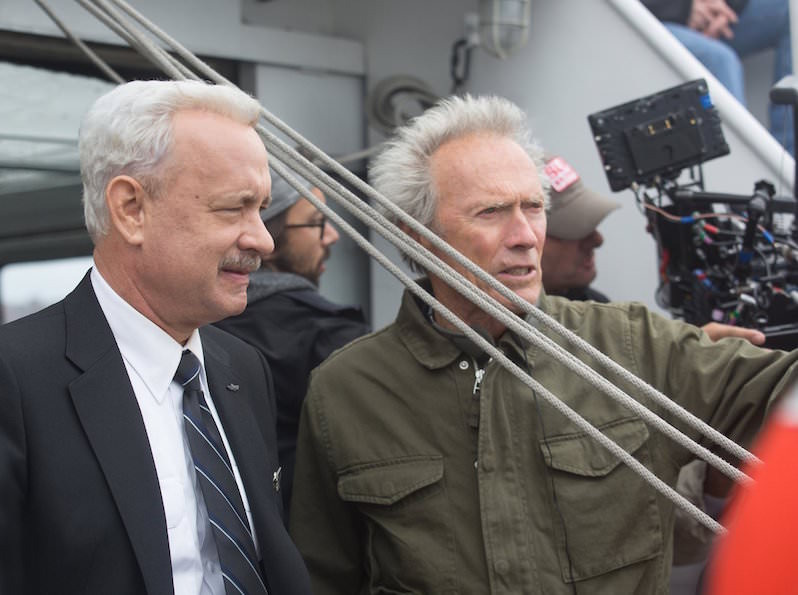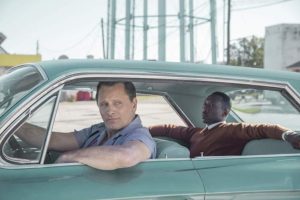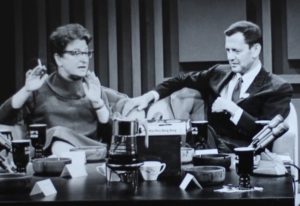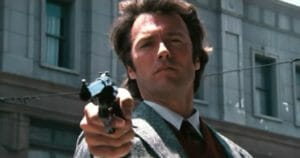With ‘Sully,’ Clint Eastwood Skillfully Traffics in the Gray Zone Once Again
The off-screen politics of Eastwood the celebrity have made headlines in his later years, but as a storyteller, he has a knack for nuance and moral complexity.
“Sully” star Tom Hanks, left, takes direction from Clint Eastwood in this still from the movie set. (IMDb)
Alfred Hitchcock retired from filmmaking at 77, Billy Wilder at 75 and John Ford at 72. Had Clint Eastwood left the game at Ford’s age, moviegoers would have missed out on one of Hollywood’s remarkable twilight careers. Since 2003, Eastwood has made 12 films, including “Mystic River,” “Million Dollar Baby” and “Letters from Iwo Jima.”
Eastwood is 86. His latest directorial effort, “Sully”—a film about the real-life US Airways pilot who made an emergency landing on the Hudson River in 2009—is Eastwood’s leanest (96 minutes) and most personal movie since “Gran Torino.”
Reduced to plot, “Sully” is about how a pilot accustomed to being in control reacts in the 208 seconds he loses control of his plane, and how he interacts with co-pilot, crew, passengers and rescuers. Very much resembling a peaced-out Ted Turner, Tom Hanks effectively portrays Sully, and Aaron Eckhart his co-pilot, Jeff Skiles.
Like so many films from the polarizing actor/director, “Sully” is about personal responsibility, masculinity, the threat of untimely death and the kind of courage mistakenly referred to as heroism. Where most Hollywood filmmakers frame such themes in black and white, Eastwood sees them in shades of gray.
Thus “Sully,” based on screenwriter Todd Komarnicki’s adaptation of Chesley “Sully” Sullenberger’s “Highest Duty,” is no celebration of the man the tabloids dubbed “the hero of the Hudson.” It’s about how no one is a hero and how good things happen when everybody pulls together. This is Hollywood populism at its most inclusive—and a reassuring account of aviation safety opening on the weekend of the 15th anniversary of 9/11.
To paraphrase actor Saul Rubinek, who worked with the filmmaker on “Unforgiven,” physically Eastwood resembles an exclamation point, but philosophically he is more of a question mark. As one whose life as a reviewer overlaps with Eastwood’s life as a director, I’ve wrestled with the man and his movies since 1973, concluding that both defy ideological labels. Here is a guy who publicly inveighs against political correctness and then follows up his English-language film “Flags of Our Fathers” with the Japanese-language “Letters from Iwo Jima,” showing the same World War II battle from the perspectives of both U.S. soldiers and their Japanese counterparts.
Eastwood’s movies are much more nuanced than are his own pronouncements and those of his haters. Truth is, the man who became a legend the first half of his career by playing figures who shot first and thought about it later has devoted the second half to exploring the consequences of gun violence (“Unforgiven,” “Mystic River” and “Gran Torino”).
It’s easy to see how Eastwood confounds his critics on both sides of the political aisle. In 2012, he yanked the chain of GOP strategist Karl Rove, who charged that Eastwood’s narration of Chrysler’s “Halftime in America” ad during the Super Bowl was a tacit endorsement of President Obama’s decision to bail out the failing auto industry.
Later that year, he pushed the buttons of Democrats by endorsing Republican presidential candidate Mitt Romney at the GOP convention in Tampa, Fla. Eastwood improvised an unusual piece of political theater by conducting an imaginary conversation with Obama, represented for the occasion by an empty chair. (In a recent interview, he admitted he was “silly” for making that GOP appearance.)
Like Yeats said, it’s hard to separate the dancer from the dance. Should we believe what Eastwood says or what he does? While “Sully” is not art of the highest order, it is the rare film in which the filmmaker strips the storytelling to its atomic weight. It is all the more powerful for that.
The film pungently shows the cognitive dissonance—and probable post-traumatic stress disorder—suffered by Sully and Skiles during the days after flight 1549. While being celebrated warmly in the media, they were grilled by the National Transportation and Safety Board (NTSB) for not following protocol. This threatened to turn their proudest moment into a career-ender.
Were they heroes, as the tabloids called them? Daredevils, as the NTSB suspected? Or were they something else? Personifications of professionalism, the actors neither turn up the volume nor indulge in histrionics. Watching the characters modulate their answers while being accused of showboating creates the same degree of tension as watching them land a plane without working engines.
The implication for Eastwood, who has defined masculinity for three generations of Americans, is that real men don’t need to prove their manhood—and that heroism is a common misnomer for professionalism.
While he may be a lightning rod for ideologues on both ends of the political spectrum, Eastwood is also a storyteller who sees that often there are more than two sides to every story.
Independent journalism is under threat and overshadowed by heavily funded mainstream media.
You can help level the playing field. Become a member.
Your tax-deductible contribution keeps us digging beneath the headlines to give you thought-provoking, investigative reporting and analysis that unearths what's really happening- without compromise.
Give today to support our courageous, independent journalists.





You need to be a supporter to comment.
There are currently no responses to this article.
Be the first to respond.